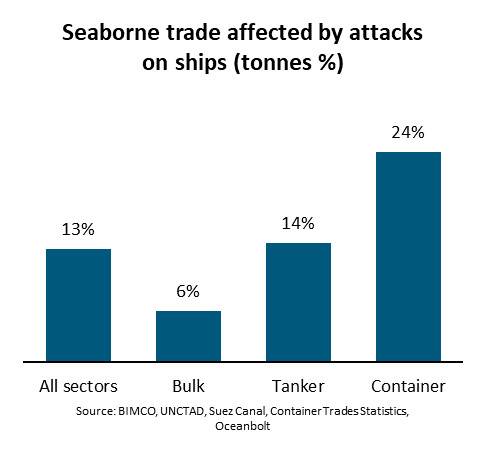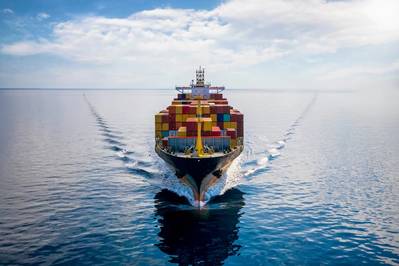BIMCO: 13% of World Seaborne Trade Under Attack from Houthis and Somali Pirates
One of the largest of the international shipping associations BIMCO has reported increased threats associated with maritime shipping amid Red Sea risks related to Houthi strikes and rise of piracy activities offshore Somalia.
Since November 2023, the threat to shipping has increased as the Houthis started attacking ships in the Red Sea and the Gulf of Aden. Simultaneously, piracy activity off the East coast of Somalia has risen and since December, two bulk carriers and several fishing ships have been hijacked. This marks the first successful hijackings by Somali pirates in six years, according to BIMCO.
“Houthi attacks on ships in the Red Sea, coupled with a rise in piracy off the coast of Somalia, are disrupting global trade. In 2023 an estimated 13% of global seaborne trade transited through these areas. However, the attacks have reduced the number of ships transiting the area by 50%,” said Filipe Gouveia, Shipping Analyst at BIMCO.
As a result, there has been a significant reduction in ships in the region since January 2024. In the first three weeks of March, the number of ships transiting through the Suez Canal was down 51% y/y, accounting for a 63% y/y drop in gross tonnage.
“Ships increasingly avoid the affected areas and sail longer distances around the Cape of Good Hope, delaying cargo, tightening supply and increasing freight rates. The longer distances also boost bunker oil consumption which raises voyage costs and carbon emissions,” added Gouveia.

The ships still sailing through the affected areas also face higher costs. They risk the loss of life and damages to ships and must pay higher insurance premiums. Consequently, the heightened threat to ships increases trading costs no matter the route selected.
To circumvent the higher cost and limit delays, shippers may try to limit cargo through the area and increase trade from unaffected ones. However, this will likely be only partial and limited to certain commodities. Also, for countries in the affected areas, circumventing the conflict is difficult and their ability to import and export goods has weakened.
Nation states are working to reduce the threat level in the Red Sea, Gulf of Aden and off the coast of Somalia. A US-led coalition and a maritime operation by the EU are attempting to improve ship safety in the Red Sea, so far with limited success. Meanwhile, the Indian Navy has been active in the fight against Somali piracy, recently recovering one of the hijacked bulk carriers.
“Despite efforts to improve safety, both groups remain active, and the Houthis have threatened to expand their attacks to ships in the Indian Ocean. Unless safety in the area improves significantly, ships cannot return to their normal routes. As shipping is responsible for transporting around 80% of world trade, delays and higher costs are expected to continue,” concluded Gouveia.














